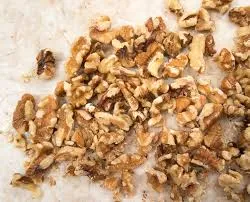-
 Afrikaans
Afrikaans -
 Albanian
Albanian -
 Amharic
Amharic -
 Arabic
Arabic -
 Armenian
Armenian -
 Azerbaijani
Azerbaijani -
 Basque
Basque -
 Belarusian
Belarusian -
 Bengali
Bengali -
 Bosnian
Bosnian -
 Bulgarian
Bulgarian -
 Catalan
Catalan -
 Cebuano
Cebuano -
 Corsican
Corsican -
 Croatian
Croatian -
 Czech
Czech -
 Danish
Danish -
 Dutch
Dutch -
 English
English -
 Esperanto
Esperanto -
 Estonian
Estonian -
 Finnish
Finnish -
 French
French -
 Frisian
Frisian -
 Galician
Galician -
 Georgian
Georgian -
 German
German -
 Greek
Greek -
 Gujarati
Gujarati -
 Haitian Creole
Haitian Creole -
 hausa
hausa -
 hawaiian
hawaiian -
 Hebrew
Hebrew -
 Hindi
Hindi -
 Miao
Miao -
 Hungarian
Hungarian -
 Icelandic
Icelandic -
 igbo
igbo -
 Indonesian
Indonesian -
 irish
irish -
 Italian
Italian -
 Japanese
Japanese -
 Javanese
Javanese -
 Kannada
Kannada -
 kazakh
kazakh -
 Khmer
Khmer -
 Rwandese
Rwandese -
 Korean
Korean -
 Kurdish
Kurdish -
 Kyrgyz
Kyrgyz -
 Lao
Lao -
 Latin
Latin -
 Latvian
Latvian -
 Lithuanian
Lithuanian -
 Luxembourgish
Luxembourgish -
 Macedonian
Macedonian -
 Malgashi
Malgashi -
 Malay
Malay -
 Malayalam
Malayalam -
 Maltese
Maltese -
 Maori
Maori -
 Marathi
Marathi -
 Mongolian
Mongolian -
 Myanmar
Myanmar -
 Nepali
Nepali -
 Norwegian
Norwegian -
 Norwegian
Norwegian -
 Occitan
Occitan -
 Pashto
Pashto -
 Persian
Persian -
 Polish
Polish -
 Portuguese
Portuguese -
 Punjabi
Punjabi -
 Romanian
Romanian -
 Russian
Russian -
 Samoan
Samoan -
 Scottish Gaelic
Scottish Gaelic -
 Serbian
Serbian -
 Sesotho
Sesotho -
 Shona
Shona -
 Sindhi
Sindhi -
 Sinhala
Sinhala -
 Slovak
Slovak -
 Slovenian
Slovenian -
 Somali
Somali -
 Spanish
Spanish -
 Sundanese
Sundanese -
 Swahili
Swahili -
 Swedish
Swedish -
 Tagalog
Tagalog -
 Tajik
Tajik -
 Tamil
Tamil -
 Tatar
Tatar -
 Telugu
Telugu -
 Thai
Thai -
 Turkish
Turkish -
 Turkmen
Turkmen -
 Ukrainian
Ukrainian -
 Urdu
Urdu -
 Uighur
Uighur -
 Uzbek
Uzbek -
 Vietnamese
Vietnamese -
 Welsh
Welsh -
 Bantu
Bantu -
 Yiddish
Yiddish -
 Yoruba
Yoruba -
 Zulu
Zulu
Aug . 02, 2024 11:57 Back to list
Health Benefits Of Eating Nuts
Health Benefits Of Eating Nuts
The creamy, savory, fatty taste and texture of nuts make them a popular snack to munch on when watching an intense sporting event. Though nuts have an excellent amount of health benefits, many people do not consume them. These bite-size nutritional powerhouses are packed with heart-healthy fats, protein, vitamins, and minerals.
Studies have shown that individuals who eat nuts as part of their diet can lower low-density lipoprotein (LDL or “bad”) cholesterol levels in the blood. Lowering your LDL cholesterol level can reduce the risk of heart disease by decreasing the potential of developing blood clots that can cause a deadly heart attack. Nuts can also improve the health of the lining of the arteries.
Nuts are an excellent source of dietary fiber. Dietary fiber can prevent constipation and help the body drive out biological wastes, while maintaining a healthy blood sugar level. According to the Dietary Guidelines for Americans, an individual should consume at least 25-34 grams of fiber, depending if one is a male or female. This is especially useful for individuals with diabetes, because fiber prevents lethal sugar crashes.
Fiber can also decrease the bad cholesterol levels out of the arteries and blood vessels. This is another reason nuts can help improve heart health. Nuts also contain omega-3 fatty acids, which have been found to lower cholesterol levels in individuals with high blood cholesterol. Omega-3 fatty acids also fight inflammation. Inflammation is the body’s first attempt at protecting itself and attempting to heal itself. Too much inflammation is a bad thing, and there is ongoing research into the links between inflammation and heart attacks.
Herbal Walnuts
As little as two ounces of nuts a week appears to help lower heart disease risk. Excellent selections include:
- Almonds
- Brazil nuts
- Cashews
- Filberts
- Peanuts
- Pistachios
- Walnuts
Health Benefits of Walnuts:
Some nuts, like walnuts, have high amounts of alpha linoleic acid (ALA). Research has suggested that ALA may help heart arrhythmias (irregular heart beat).
Peanut and Almond Health Benefits:
For great brain food, individuals should try peanuts or almonds. Peanuts are rich in folate. Folate decreases the levels of an amino acid called homocysteine in the blood, protecting the heart. Elevated levels of homocysteine are not only dangerous to the brain; it is also a risk factor for heart attack, stroke, or peripheral vascular disease.
Also, studies have shown that a scarce amount of dietary folate can increase homocysteine levels in the blood, which have been linked to brain diseases like Alzheimer’s and Parkinson’s disease.
Pregnant women should consume almonds or peanuts because folate helps reduce the frequency of birth defects in newborn babies. It also encourages healthy cell growth and tissue formation. Neural tube defects are conditions where the neural tube is either underdeveloped or is partially missing in the fetus.
Individuals who are allergic to some types of nuts should talk to their doctor first before eating nuts in order to prevent a reaction. Otherwise, try a handful of nuts at least three times per week, in order to get the full health benefits of nuts. Nuts can help your face glow, while at the same time make your heart strong.
-
Premium Macadamia Nuts - Fresh, Crunchy & Healthy Snack Choice
NewsJul.30,2025
-
Premium Biscuits Packaging – Elegant, Durable & Customizable Solutions
NewsJul.29,2025
-
Top Banana Flavor Sunflower Seeds Exporter - Factory Direct Supply
NewsJul.29,2025
-
Premium Snack Dates - Healthy, Natural & Delicious Treats
NewsJul.29,2025
-
Premium Peanuts - Fresh, Nutritious & Delicious Snacks for All
NewsJul.28,2025
-
Premium Raisins - Sweet, Healthy & Natural Dried Fruit Snack
NewsJul.27,2025

